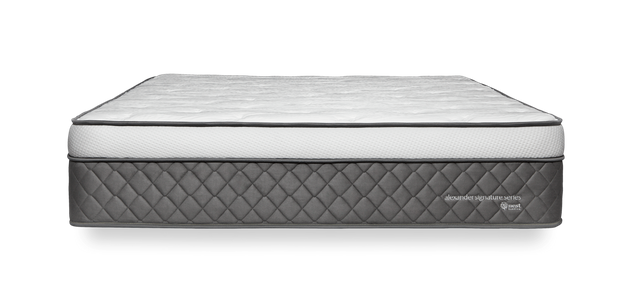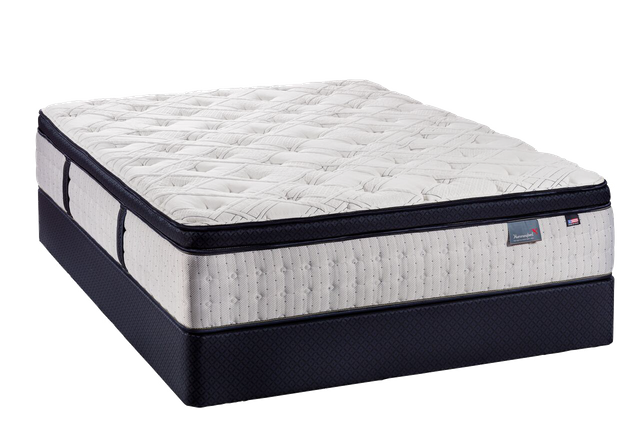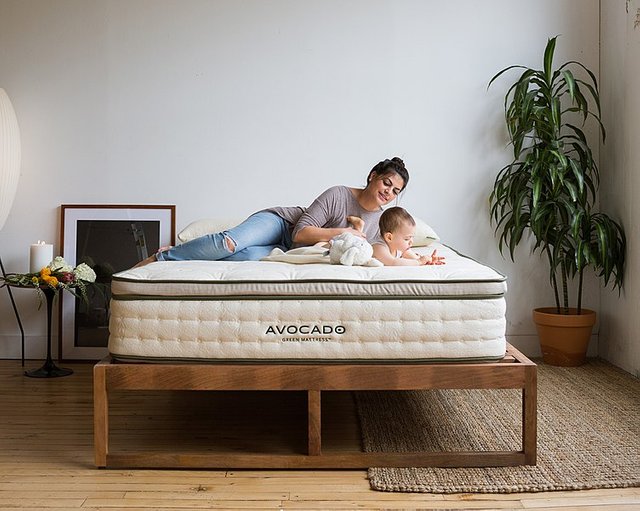How to Choose Mattress for Healthy Sleep?
Before going to the store, you should know in advance how to choose the right mattress. And it's not as easy as it may seem — you should take into account not only your bed size and your personal preferences, but also a lot of other factors.

Types of Mattresses
In any furniture store you will be offered dozens of mattresses for every taste and budget. How to choose a mattress that will help your body to relax and serve you for many years?
Classification of Mattresses by Construction Type
Mattress quality mainly depends on its "filling". Most often, under the upholstery you will find hidden springs, however, they can be different. And some models do not contain springs, providing elasticity with the help of other materials.
Spring mattresses come with dependent and independent springs. In the first case, the springs are intertwined with each other in a certain way, and in the second — each spring stays in a separate fabric "glass". Mattresses with independent spring blocks are more convenient, as the springs isolated from each other better adjust to the shape of the body. 256 springs per square meter is the standard for most mattresses of this type. Such a large number of springs makes the mattress very comfortable.
Springless mattresses are a block of artificial or natural latex, coconut fiber, as well as a variety of synthetic high-tech materials. Inflatable and water mattresses are also considered as springless.
Types of Mattresses Depending on the Filler Material
Now we are more or less familiar with the types of springs, but the variety of fillers can be confusing – they can be made out of a lot of materials, and if some are used since the old days, the others appeared recently and ordinary people know little about them.

Latex. Natural material, characterized by elasticity, hypoallergenic and anatomical. In addition, latex is hygienic and provides good spine support.
Coconut coir. Elastic, durable and hypoallergenic material that has high bactericidal properties and is used as a filler for hard mattresses.
Polyurethane foam. The material, which is characterized by high elasticity, good breathability and hypoallergenicity.
Memoriform. Hypoallergenic high-tech filler for mattresses based on polyurethane, durable and reliable. It is a viscoelastic foam, the cells of which are similar to small springs, compressing under the influence of body weight.
Memorilatex. Breathable honeycomb structure material, not susceptible to temperature changes. This material is very durable.
Viscoelastic foam. This innovative hypoallergenic material has a "memory effect" and provides the most natural position of the spine, without harming blood circulation during rest.
Sisal. Natural fiber with high antistatic properties that can easily pass air and evaporate moisture released during sleep. Very durable material designed for heavy loads.
This is not a complete list of fillers for mattresses. Felt, horsehair and natural wool, latex with various additives and other materials, both natural and synthetic are also used for the production of mattresses.
Double and Single-Sided Mattresses
Most of the mattresses presented in the stores are single-sided, but some companies specializing in the production of orthopedic mattresses offer double-sided models. In double-sided mattresses, the sides can have different stiffness level and different types of coverage. For example, double-sided mattresses for different seasons can have two sides – for winter and for summer. "Winter" side has a wool layer and a softer filler for heat preservation, and "summer" side is covered with a hygroscopic fabric and provides good air exchange in the hot months.
Orthopedic Mattress
They are designed to provide optimal support for the spine while maintaining health of the musculoskeletal system. It conforms to the anatomical contours of the body, preventing numbness in the limbs and other types of discomfort. For people suffering from back pains, as well as diseases of the ligaments and joints, an orthopedic mattress is a must-have. And for healthy people, high-quality orthopedic mattress will be effective prevention of back-related problems.
Which Mattress to Choose
The main criterion for choosing a mattress is personal preferences, but you should also take into account other factors — such as your weight, age, and health.

Taking into Account Height, Weight, and Age
The mattress should not be too short, but it is even more important that it corresponds to the size of the bed base and does not hang from the edge. Calculating mattress size is simple — it should be at least ten inches larger than your height. People of large body volume can choose king size mattress. Its dimensions are 80 x 76 inches. If you need a mattress of this size, look at this site, where you will find reviews of popular models and a buyer's guide.
Full-figured people should prefer hard mattresses, slim people – soft ones, for example, with independent springs, or filled with latex. People of medium body type can comfortably sleep on any mattress.
Age is also very important – doctors do not recommend elderly people to sleep on mattresses of a high degree of rigidity, as it can provoke problems with the spine and blood circulation. To choose a mattress for a child is somewhat more complicated. Children of primary school age and adolescents are usually recommended rigid springless mattresses, such as synthetic foam materials. Children's mattress should be durable – children will jump and play on it.
When choosing a mattress for very young children, the main criterion should be hygroscopicity. The ideal option may be 1-3 inches thick mattress with a filler of coconut fiber.
The best mattress for a couple – a model of medium rigidity with independent springs. If one of the sleepers often turns over in their sleep or gets up, the other half of the mattress remains motionless.
Taking Health into Account
Natural materials are eco-friendly and durable, but many of them are contraindicated for allergies, so if you are allergic, give preference to synthetic materials.
People with diseases of the lumbar spine are recommended to pay attention to the soft models that provide good support for the lower back. Medium hard mattresses are ideal for people with problems in the thoracic spine. Hard mattresses are more suitable for those who suffer from pain in the upper back and osteochondrosis, as well as anyone who would like to improve posture.
That's right, before you buy a mattress, you should study carefully what types of mattresses are available. And what is best for you.